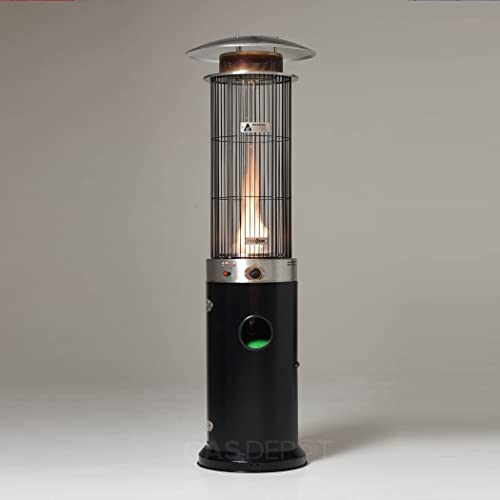20 Resources That'll Make You Better At Gas Powered Heaters

Gas Powered Heaters: A Comprehensive Guide
When it pertains to heating residential or commercial areas, gas-powered heaters have made a distinguished track record for their effectiveness and cost. Providing a mix of efficiency and cost-effective operation, they are favored by many homeowners and organizations alike. This short article aims to clarify the various types, advantages, and considerations associated with gas-powered heaters, enabling readers to make educated decisions about their heating solutions.
Types of Gas Powered Heaters
Gas-powered heaters can mostly be classified into different classifications based on their style and function. Each type serves a specific function and features distinct functions:
| Type | Description | Common Uses |
|---|---|---|
| Natural Gas Heaters | Use gas as a fuel source. | Residential spaces, commercial buildings |
| Propane Heaters | Use propane gas, often in locations without natural gas. | Outdoor heating, remote areas |
| Infrared Gas Heaters | Release infrared radiation to directly heat items. | Patios, workshops, garages |
| Gas Wall Heaters | Installed on walls, these heaters are space-saving. | Small spaces, bed rooms |
| Gas Fireplaces | Supply both warmth and aesthetic appeal. | Living rooms, recreational spaces |
Benefits of Gas Powered Heaters
Gas-powered heaters included several significant advantages, contributing to their appeal amongst users. Here are some of the key advantages:
- Energy Efficiency: Gas heaters are known for their high energy performance. They convert a big percentage of the energy in gas into heat, frequently earning high typical Annual Fuel Utilization Efficiency (AFUE) ratings, which measures how efficiently a heater transforms gas energy into functional heat.
- Cost-efficient Operation: Natural gas and propane are typically more economical than electricity. Homeowners using gas heating can see an obvious decrease in their energy costs during the colder months.
- Rapid Heating: Gas-powered heaters tend to warm areas rapidly, offering immediate relief, particularly throughout chilly winter season days and nights.
- Lower Environmental Impact: Compared to electrical heater that depend on fossil-fuel energy sources, gas heaters can be a more environmentally-friendly alternative, particularly when using gas that produces fewer carbon emissions.
- Dependability: Gas systems can continue to operate during power blackouts, that makes them a dependable heating alternative in locations prone to extreme weather or electrical interruptions.
Considerations When Choosing a Gas Powered Heater
While gas-powered heaters provide a variety of advantages, there are also several factors to consider to bear in mind before buying:
- Installation Requirements: Some gas heaters require professional installation including venting systems to safely expel combustion gases. Ensure you comprehend the installation procedure and any associated expenses.
- Safety: It is vital to keep security in mind when using gas appliances. Routine upkeep and evaluations are important to avoiding concerns such as gas leaks or carbon monoxide gas, which can posture major health threats.
- Space and Size: Selecting the best size heater for your space is important. Stylish Outdoor Heaters can cause short biking and unnecessary expenditures, while an undersized unit might not supply sufficient heat.
- Fuel Availability: Assess the schedule of either natural gas or propane in your location. This can influence continuous expenses and usage.
- Local Regulations: Check any regional building regulations and regulations concerning gas installations to ensure compliance and safety.
Upkeep Tips for Gas Powered Heaters
To prolong the life of gas-powered heaters and keep their effectiveness, think about implementing the following maintenance techniques:
- Regular Inspections: Schedule annual evaluations with a qualified professional to evaluate the overall condition of the heater and determine any possible concerns.
- Tidy the Burner: Dust and particles can collect on gas burners, resulting in inefficient operation. Cleaning up regularly can help enhance performance.
- Inspect Ventilation: Ensure that venting systems are clear of obstructions and operating properly to alleviate risks of carbon monoxide gas accumulation.
- Look for Gas Leaks: Regularly check the gas line and connections for any possible leakages. Unexpected rises in gas costs might show a problem.
- Replace Filters: On particular models, air filters might need replacement or cleansing to ensure proper air flow and system efficiency.
FAQs About Gas Powered Heaters
1. How do I understand what size gas heater I require?
Determining the proper size of a gas heater for your space generally includes examining the square footage of the location to be warmed, insulation quality, and climate conditions. An expert assessment can also supply precise sizing suggestions.
2. Are gas heaters safe to use?
Yes, gas heaters can be safe when used and preserved properly. Nevertheless, it's important to adhere to safety standards including routine assessments and maintenance to ensure that possible dangers such as gas leakages are mitigated.
3. Can I use gas heaters inside your home?
Numerous gas heaters are safe for indoor usage, but they should be appropriately vented to the outside. Constantly refer to the manufacturer's standards and regional regulations before utilizing gas heaters inside your home.
4. What should I do if I smell gas?
If you identify a gas odor, leave the area immediately, do not run any electrical devices, and call your regional gas company or emergency services to report the leak.
5. How long do gas heaters last?
With correct upkeep, a high-quality gas heater can last anywhere from 10 to 20 years. Routine service can assist extend its life-span.
Gas-powered heaters are an efficient and efficient method to heat areas during colder months. With various options offered, customers can find a heating solution customized to satisfy their specific requirements and choices. By understanding the benefits, factors to consider, and correct maintenance needed, people can guarantee that their gas heating unit supply warmth reliably and securely for numerous winter seasons to come.

